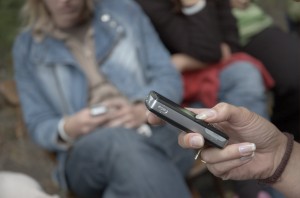In the Sunday edition of The Philadelphia Inquirer, John Timpane wrote about the recent flash mobs in Philadelphia, organized through various social media. They are an ugly reminder that tools that can be used for good, such as the uprisings in the various Middle East countries over the last year or more, can be used for more nefarious pursuits.
One of the questions tackled by the article (Summer of the Mob, available only to digital subscribers to the Inquirer) is whether offenders can be banned from social media. Not likely. The same applies to the idea of prosecuting offenders who send messages regarding upcoming illegal events, as it is very difficult to determine intent, if the message is not completely specific about the actions that will occur, the place, the date, and the time.
Some law enforcement officials want access to the encrypted messages in order to patrol social media and be prepared for possible events. The very feature that draws customers to some social media options, privacy, could spell it’s doom if the developer of the product decides to cooperate with law enforcement regarding access.
Finally, there was a voice of reason, in Rosa Golijan, technology blogger for MSNBC.com, who mentioned that the young people planning these events often used Twitter, where trending topics by city can be monitored by anyone, or Facebook, on public pages for anyone to view. No invasion of the private sphere, just listening to what is happening, now.
I can imagine police departments reaching out to social media experts asking for help in setting up their listening stations, how to monitor trending topics, and how to search for the specific kind of language that will tip them off to possible impending group actions. I can’t be completely sure, but it sounds a lot like monitoring the social streams for business innovations and trends, and customer feedback. Probably not a bad time for law enforcement to get into the game!
Photo Credit: http://www.sxc.hu/photo/683316

